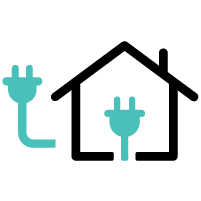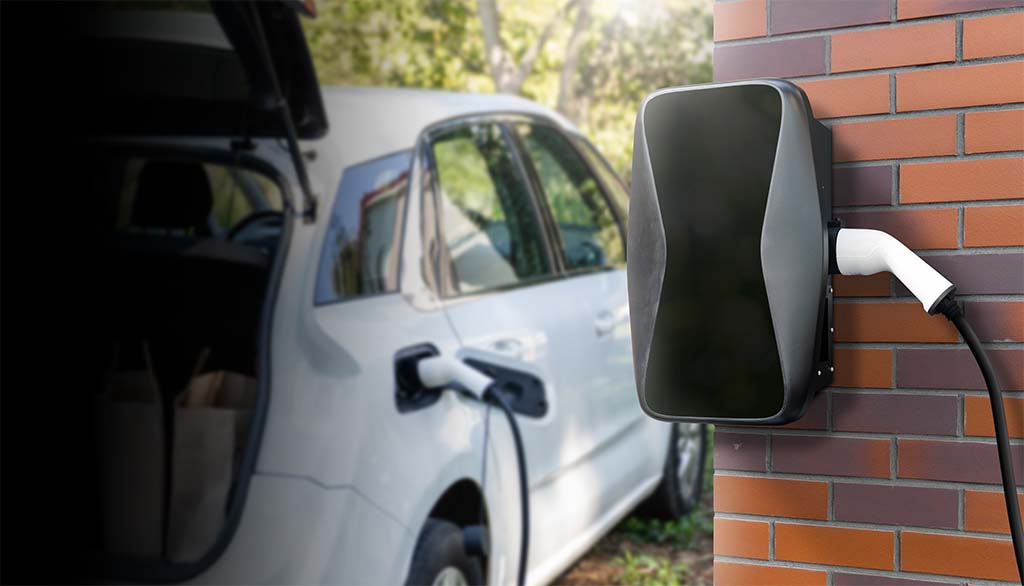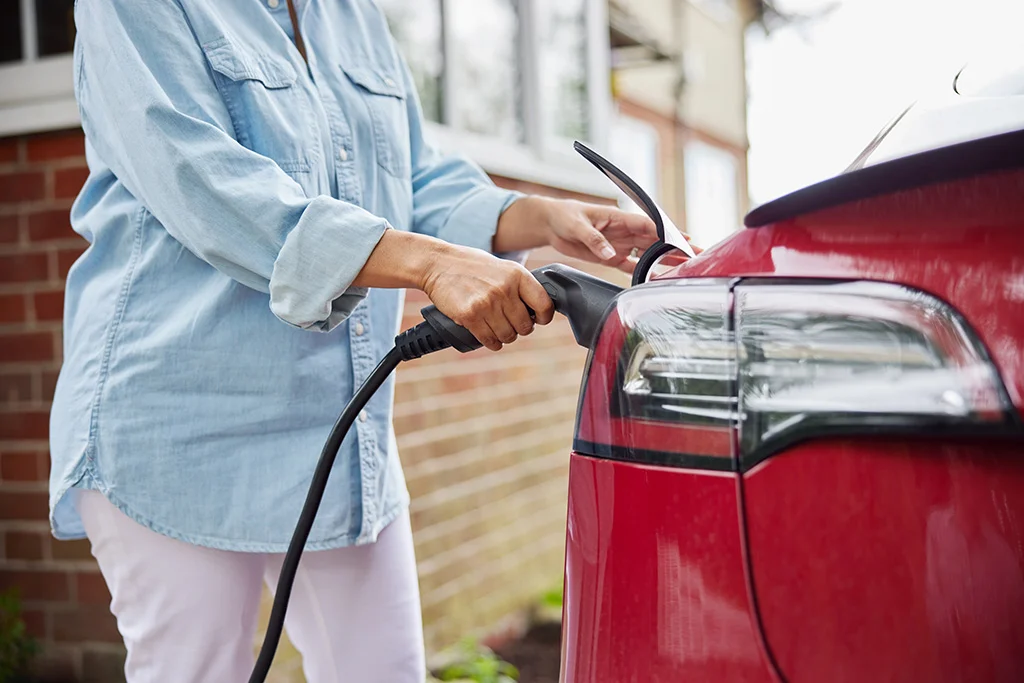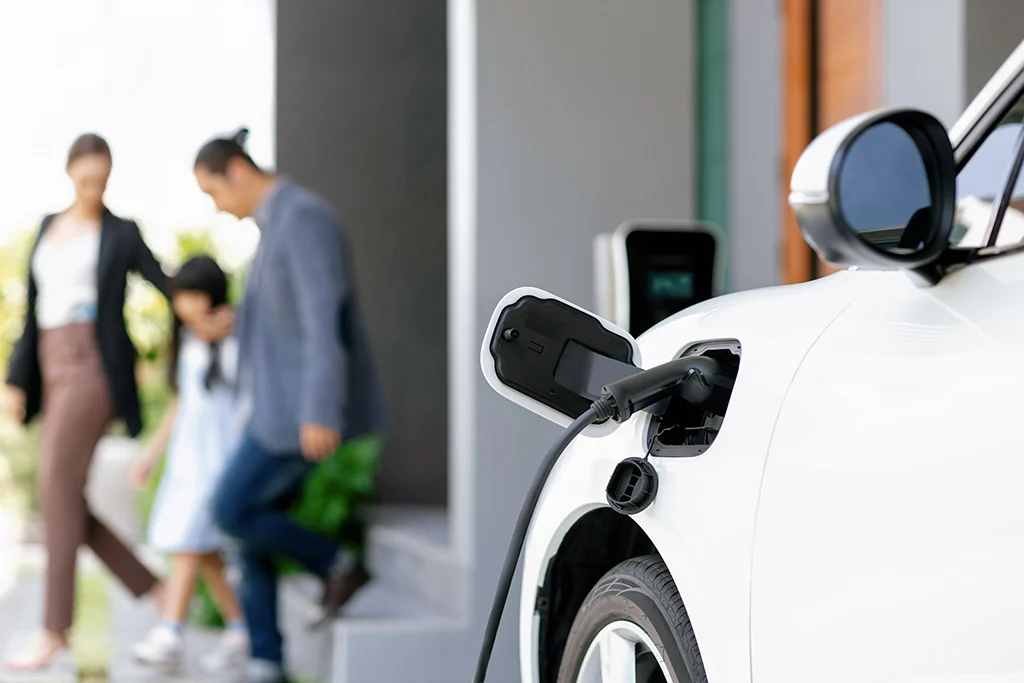Understanding the Cost and Options for Home EV Charger Installation
Installing a home EV charger is a key step in making electric vehicle ownership more convenient, but the total cost can vary significantly based on several factors. Homeowners should consider aspects such as electrical capacity, charger type, and installation complexity before making a decision. Additionally, the choice between a plug-in and a hardwired charger can impact flexibility, cost, and long-term reliability. Below, we outline the key factors that influence installation costs and the differences between plug-in and hardwired EV chargers.
Factors Affecting Installation Costs
The cost of installing a home EV charger depends on several factors:

Charger Type & Amperage
Higher power chargers (e.g., 48A+) cost more due to thicker wiring and bigger breakers.
Electrical Panel Capacity
Upgrading an overloaded panel can add $1,000–$5,000+ to the cost.
Wiring Distance
Longer runs from the panel to the charger increase labor and material costs.
Installation Type
Plug-in (NEMA 14-50) is cheaper, while hardwired installations cost more but allow higher power.
Permits & Inspection
Typically $100–$500, depending on local codes.
Labor Costs & Complexity
Running wires through walls or underground adds to the cost.
Indoor vs. Outdoor
Outdoor setups may require weatherproofing, increasing expenses.
Rebates & Incentives
Federal, state, and utility rebates can reduce costs by $250–$1,500+.
Estimated Cost Ranges
Basic install
(existing panel, short wiring):
$500–$1,500
Moderate install
(new wiring, minor panel work):
$1,500–$3,000
Complex install
(panel upgrade, long wiring, trenching):
$3,000–$6,000+
Plug-in vs. Hardwired EV Chargers
Installation
Plug-in Charger: Connects to a 240V outlet, typically a NEMA 14-50 (50A) or NEMA 6-50 plug. Requires an electrician to install the outlet if one isn’t already available.
Hardwired Charger: Permanently connected to your home’s electrical system without a plug. It requires direct wiring to a circuit breaker.
Flexibility
Plug-in: Can be unplugged and moved if you relocate or want to take it with you. Also allows for easy replacement.
Hardwired: Fixed in place, ideal for permanent installations.
Charging Power
Plug-in: Usually limited to 40 amps max, since most 50-amp circuits require an 80% derating rule for continuous loads.
Hardwired: Can support higher amperages (up to 48-80 amps) for faster charging, depending on the electrical panel capacity.
Safety & Code Compliance
Plug-in: May not meet local electrical codes for outdoor use unless installed in a weatherproof enclosure.
Hardwired: Generally more weather-resistant and often required for outdoor installations.
Cost Considerations
Plug-in: Lower installation cost if you already have a 240V outlet, but adding an outlet might cost extra.
Hardwired: More expensive upfront due to installation costs but may provide better long-term reliability.




Which One Should You Choose?
- Plug-in: Best for renters, those who may move, or if you already have a compatible outlet.
- Hardwired: Best for permanent installations, higher power needs, or outdoor setups.
This guide provides a comprehensive overview to help you choose the best installation option for your home EV charger. Consult us to determine the best installation option for you. We can help assess your specific needs and guide you through the process.
| FEATURE | PLUG-IN CHARGER | HARDWIRED CHARGER |
|---|---|---|
| INSTALLATION | Plugs into a NEMA 14-50 or 6-50 outlet (requires 240V outlet installation if not already available) | Directly wired to electrical panel (requires an electrician) |
| FLEXIBILITY | Portable—can be unplugged and moved | Permanent—fixed in one location |
| POWER OUTPUT | Usually limited to 40A(due to circuit breaker limitations) | Can support higher amperage (48A–80A) for faster charging |
| COST | Lower upfront cost if an outlet exists | Higher installation cost but may save in the long run |
| SAFETY & CODE | May require a weatherproof enclosure for outdoor use | Generally preferred for outdoor installations due to weather resistance |
| BEST FOR | Renters, people who may move, or those with an existing outlet | Homeowners looking for a permanent and high-power charging solution |
